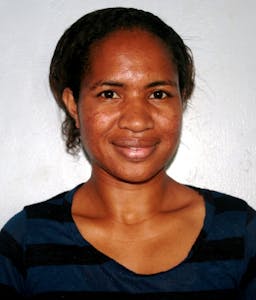Abuse of Alcohol or Alcohol to Abuse?
Jan 21, 2015
Story
Isn't it ironic? A beer company is taking the lead in fighting alcohol abuse. It's like that ad on local TV by the National Gaming Board - \"gamble responsibly.\" I mean, gambling is bad, fullstop! And then there's the little label on the cigarette packet that states, \"Smoking can kill.\" One wonders why they were introduced in the first place? Why don't we just do away with these manufacturing companies - would that solve the problem? What's the point of having a ban on alcohol, when the brewery is still brewing? As I've heard many say, “I drink beer so the workers at the brewery can get paid.”
But with all its irony, it’s still a good thing that they are trying to get people to drink responsibly.
Yes, alcohol is not only the social lubricant but is also the biggest social problem being faced in Papua New Guinea. An Alcohol Abuse Symposium held recently in the country brought together representatives from both the private and the public sector to discuss the issue of alcohol abuse and ways to overcome it. It is encouraging to know that after numerous deaths, statistics and millions spent on alcohol-related issues, the government is finally trying to address the issue.
Statistics from the WHO global status report of 2004 show that in 1991 in Papua New Guinea, 40% of hospital admissions were alcohol-related.
\"Every minute one person is injured from an alcohol-related crash and with alcohol-related economic opportunity cost at K78.5 annually,\" states Acting Prime Minister Sam Abal.
Alcohol abuse affects the economy, but it is the family unit that suffers the most. When the husband is the sole provider, and he is also a big alcohol consumer, his fortnightly wage is spent greatly on alcohol, leaving little to buy food, clothing and other necessities. There is little to eat, the wife gets bashed up, there is no improvement in their standard of living, school fees are not paid, the kids end up staying home and resort to roaming the streets, getting involved in alcohol, other drugs and criminal activities… And so the cycle continues.
A domestic violence study carried out by the constitutional law reform commission found that 71% of women interviewed considered alcohol as a major cause of marital problems. Of those beaten by their spouse, 26% related the incident to alcohol.
What is alcohol abuse? Is it abuse of alcohol or alcohol to abuse?
It takes only a sip, one glass, one bottle to get a person to become addicted. Again the irony of it being it can be the worst tasting liquid but yet gets one hooked. Whether taken in moderation or frequently, the effects of alcohol has more negative impacts than positive - it affects the wellbeing of the person, the people around them and on a greater scale, the society.
Affecting the academic performance, professionalism, social behaviour of even the most well-mannered person, takes away time which can be spent with children and spouse instead of recovering from a hangover, affects relationships, children’s upbringing, one’s financial budget, causes one to act irresponsibly, become a wife basher, a murderer, and an abuser. Be it a mother, father, husband, wife, policeman, leader, teenager, the rich or the poor, career men and women, it can affect us all.
I lost my best friend and step brother to alcohol-related deaths. If they had not been drinking that night, they wouldn’t have gone out and gotten killed. My female relative is now having complications in pregnancy due to her drinking lifestyle. I have girlfriends who regret marrying men who continuously drink. Many women continue to be victims of alcohol abuse. Again, it’s all to do with our life choices and when we choose to say yes or no that determines our fate.
So how can we minimize the negative effects of alcohol? To ban only results in increased production of illicit alcohol as according to the South Pacific Brewery General Manager, Stan Joyce.
I believe that spiritual values and ways and holding onto it can greatly help one give up alcohol. Life education must be taught at an early age and there needs to be counselling, hotlines and support services available.
This article is part of a writing assignment for Voices of Our Future, which is providing rigorous web 2.0 and new media training for 31 emerging women leaders. We are speaking out for social change from some of the most unheard from corners of the world.




